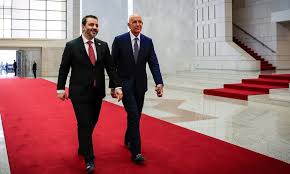Negotiations Under U.S. Pressure Seeking a Limited Security Agreement in Southern Syria

The talks, which began exploratively in Abu Dhabi and Baku and then moved to Paris, focus on limited security issues, where Syria demands the withdrawal of Israeli forces from the territories they recently occupied, the reinstatement of the demilitarized buffer zone agreed upon in 1974, and the cessation of Israeli airstrikes and ground incursions. Meanwhile, Israel shows great reluctance to concede its territorial gains.
The U.S. role appears to be a decisive factor in pushing these talks forward, as Washington seeks to expand the circle of countries normalizing relations with Israel, within the framework of what is known as the "Abraham Accords." However, U.S. efforts face complexities on the ground, as southern Syria suffers from fragile security conditions.
Despite U.S. pressure, Syrian President Ahmad al-Shara seems cautious, having informed the U.S. envoy that the conditions are "not yet ripe" for a comprehensive peace agreement, considering that "the essential elements of trust are completely absent." This Syrian caution is met with Israeli rigidity in the negotiations, as Tel Aviv does not offer significant concessions.
The biggest challenge lies in the trust gap between the two sides and the on-ground complexities in southern Syria, where Israeli incursions continue and local demands for separation escalate. All these factors make any limited agreement a significant achievement in itself, despite the distance from achieving comprehensive peace.
These negotiations remain an early attempt, hindered by a history of conflict, lack of trust, and conflicting interests. Success in achieving even a limited security agreement will require more than just U.S. pressure; it will demand genuine political will from both sides and a readiness to make concessions that have not yet clearly emerged.